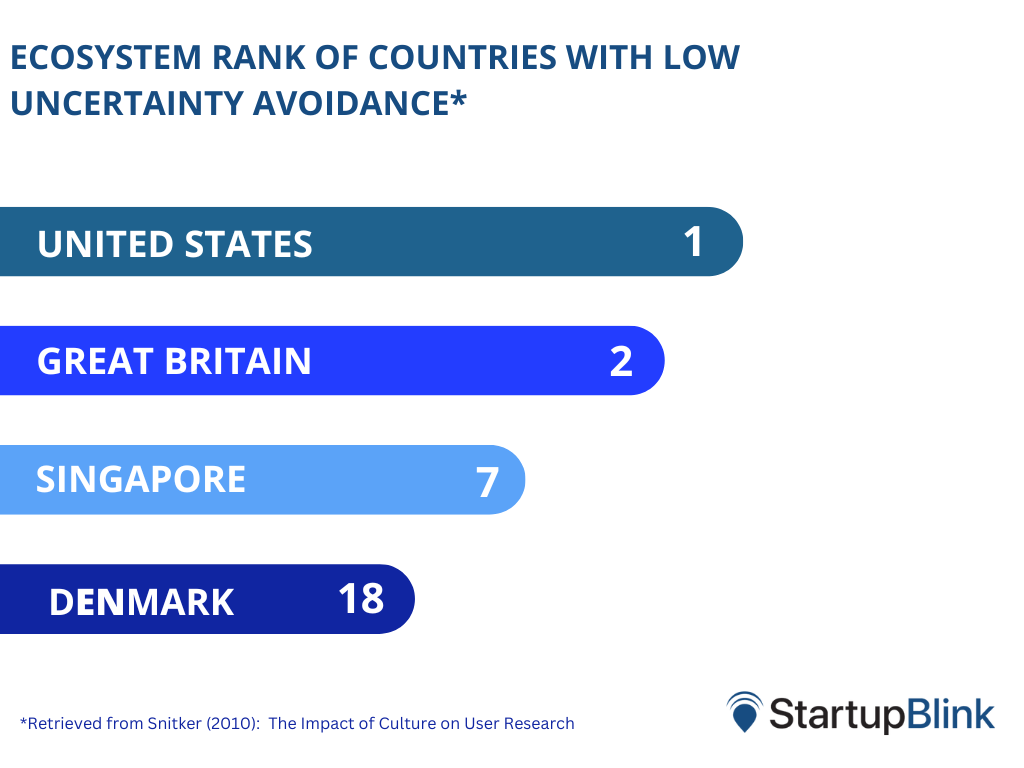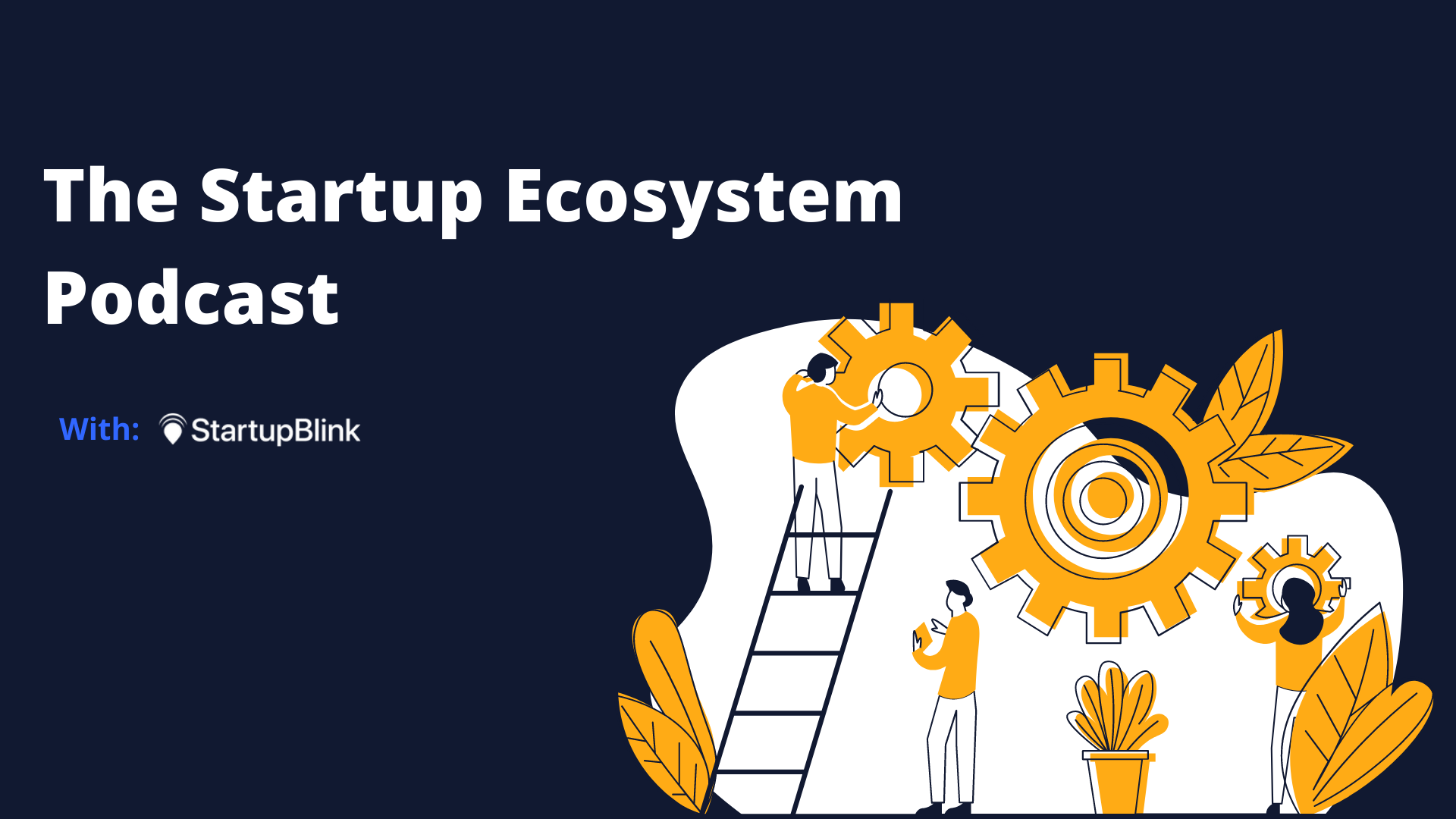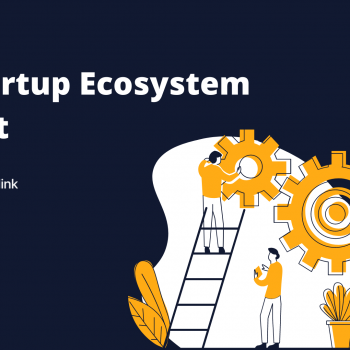Why do some startup ecosystems succeed while others fail miserably? There might not be enough success stories, investments, and trust in the ecosystem, but if you dig down more, you will see that the national mindset is a key element.
In this episode, Eli David and the StartupBlink team examine how the national mindset can affect the success rate of an ecosystem. Listen to find an answer to “How do national mindsets affect startup ecosystem growth?”.
A Startup Ecosystem is greatly influenced by the psychological and cultural structure of society. As a building needs a strong foundation, so does your startup ecosystem. Therefore, if the psychology and culture of the ecosystem do not match the culture of entrepreneurship, the ecosystem cannot be successful.
Here are some cultural and psychological mindsets that affect the growth of startup ecosystems.
The Hero vs. The Villan Mindset
Every society perceives entrepreneurs differently. Some societies believe entrepreneurs are heroes: they are problem solvers and innovation enablers. They create employment and elevate the economy.
On the other hand, others believe that entrepreneurs are manipulative. In these environments, society would not celebrate entrepreneurial success, nor would it encourage its attempts.
The history of a nation also affects its startup ecosystem growth. Ex-soviet unions such as Estonia and Lithuania are rising with tech startups because they are inherited a background in engineering. In contrast, some examples of ecosystems lag behind others because they are not paying enough attention to innovation and entrepreneurship over time. One such example is Greece. They have evolved from a country that creates innovation to a risk-free country. For the last ten years, they have remembered the value of innovation for an economy, but it will take time to catch up with the leading countries.
“Nobody is Safe” Mindset Boosts Entrepreneurship
The economies where the private and public sectors do not guarantee certainty provide a field for entrepreneurs to start new businesses. Therefore, it makes sense to see countries like the United States have high rankings for their startup ecosystems. Moreover, the fear of failure in society can be a barrier to growing the ecosystem. If people prefer to walk from safe areas rather than fail several times, ecosystem development becomes harder.
“Uncertainty Avoidance” describes the nation’s level of tolerance to unexpected situations. For a startup ecosystem to grow, uncertainty avoidance should be low. Snitker (2010) identifies the countries that score low on this dimension as Singapore, Denmark, Great Britain, and the US. When we combine this score with StartupBlink’s ecosystem ranking, these countries are in the competitive top 20. See the chart below to see different scores.

Education is the key!
Does your education system train the kids to become employees, or does it help them become successful future entrepreneurs? Education is an important socialization force that gives individuals core values. In a geography where kids grow up with the mindset of having a secure job, it is hard to boost the growth of the Startup Ecosystem. Since launching a business will not be the core goal of their education.
No Quick Solutions
When it comes to changing national mindsets, there are no quick solutions. Eli David, StartupBlink’s CEO, says it takes at least 6-7 years to change what people think about entrepreneurship and startups. One immediate action can be training the investors. There must be training on diversifying their portfolio by investing in startups with promising futures. A permanent change in national psychology is possible by educating young to learn from failure and think outside the box.
Explore startup ecosystems by geographical and business region using the StartupBlink PRO Map.
About StartupBlink
StartupBlink is the world’s most comprehensive startup ecosystem map and research center, working with more than 70 municipalities and governments worldwide. Its global startup ecosystem map has tens of thousands of registered startups, coworking spaces, and accelerators, creating a robust sample of innovation globally.
Listen on iTunes
Listen on Stitcher (Android)
Listen on Spotify





